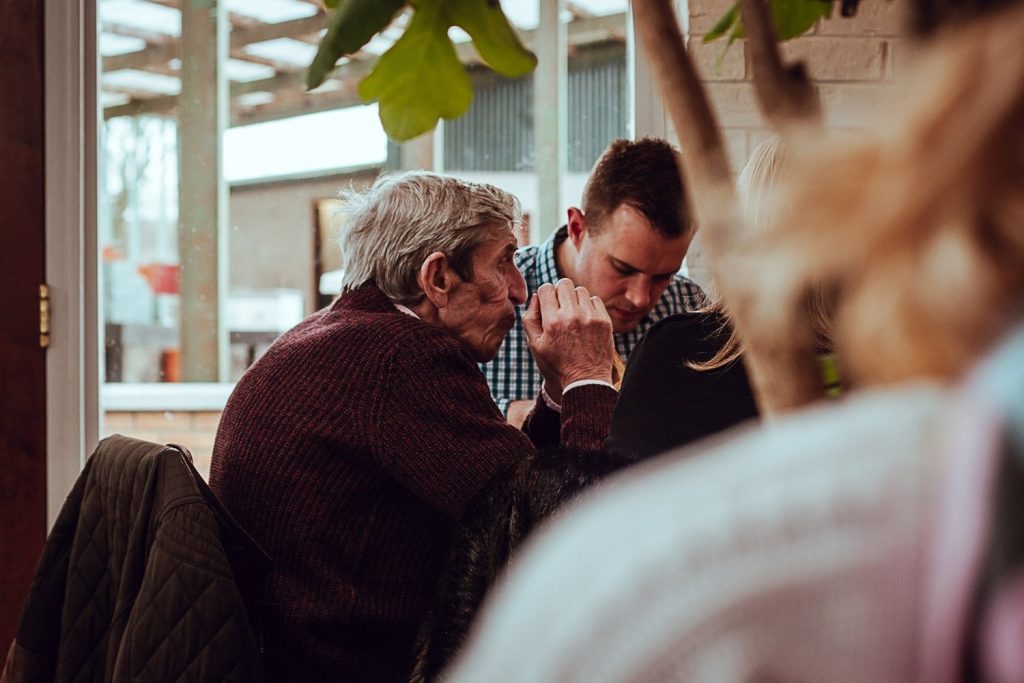Posts Tagged ‘elder law’
Uncomfortable Conversations About Estate Planning (Part 2 of 2)
My clients frequently express to me how difficult it can be to speak to their family members about the decisions they have made (or are in the process of making) when we are working on their estate planning documents. Sometimes the issue is that a parent’s adult children refuse to discuss these matters because the children are not willing to acknowledge that their parent will die at some point. Other times the issue is a child that cannot get their parents to acknowledge the need to get their affairs in order. The unique dynamics that every family has can often compound the general problem of one person or the other not wanting to discuss these matters. Last week we examined the first of the two situations I’ve mentioned above. Today, let’s look at some ideas for adult children on how to motivate their parents to get estate planning in order.
Read MoreUncomfortable Conversations About Estate Planning (Part 1 of 2)
My clients frequently express to me how difficult it can be to speak to their family members about the decisions they have made (or are in the process of making) when we are working on their estate planning documents. Sometimes the issue is that a parent’s adult children refuse to discuss these matters because the children are not willing to acknowledge that their parent will die at some point. Other times the issue is a child that cannot get their parents to acknowledge the need to get their affairs in order. The unique dynamics that every family has can often compound the general problem of one person or the other not wanting to discuss these matters. Let’s start this week by looking at the first of the two situations I’ve mentioned above and consider some possible approaches to a potentially very delicate topic. Next Sunday, we will tackle Part 2 of this topic with some ideas for adult children on how to motivate their parents to get their planning in order.
Read MoreIs Estate Planning More Important for Women?
Normal
0
false
false
false
EN-US
JA
X-NONE
/* Style Definitions */
table.MsoNormalTable
{mso-style-name:”Table Normal”;
mso-tstyle-rowband-size:0;
mso-tstyle-colband-size:0;
mso-style-noshow:yes;
mso-style-priority:99;
mso-style-parent:””;
mso-padding-alt:0in 5.4pt 0in 5.4pt;
mso-para-margin:0in;
mso-para-margin-bottom:.0001pt;
mso-pagination:widow-orphan;
font-size:12.0pt;
font-family:Cambria;
mso-ascii-font-family:Cambria;
mso-ascii-theme-font:minor-latin;
mso-hansi-font-family:Cambria;
mso-hansi-theme-font:minor-latin;}
Let’s start by acknowledging that estate planning is incredibly important for every adult person in America. No matter what level of wealth, or lack thereof, and no matter what your gender, marital status, or age, if you are an American over the age of 18, you should have at least basic estate planning in place. By “basic estate planning” I simply mean the collection of documents that establish what will happen to you, your family, and the things you own if you become unable to make your own decisions (“incapacitated”) or upon your death.
Read MoreWhat Happens if you Handwrite Your Own Will in Idaho?
Normal
0
false
false
false
EN-US
JA
X-NONE
/* Style Definitions */
table.MsoNormalTable
{mso-style-name:”Table Normal”;
mso-tstyle-rowband-size:0;
mso-tstyle-colband-size:0;
mso-style-noshow:yes;
mso-style-priority:99;
mso-style-parent:””;
mso-padding-alt:0in 5.4pt 0in 5.4pt;
mso-para-margin:0in;
mso-para-margin-bottom:.0001pt;
mso-pagination:widow-orphan;
font-size:12.0pt;
font-family:Cambria;
mso-ascii-font-family:Cambria;
mso-ascii-theme-font:minor-latin;
mso-hansi-font-family:Cambria;
mso-hansi-theme-font:minor-latin;}
From time to time in my practice as an estate planning attorney I come across a Last Will and Testament (a “will”) that is handwritten. If my client is the person who wrote the handwritten will, he or she is usually meeting with me due to a decision to formalize the estate plan. However, I am always asked in that scenario: “was my old handwritten will valid?” The answer, as it so often is with legal matters, is that it depends.
Read MoreEstate Planning Can Help Seniors Remain Independent
No one wants to be a burden on his or her friends and family. And no one wants to lose his or her independence. Yet, so many of my clients express deep concern about both. Seniors want to ensure that their families are not disrupted when the complications of life occur. Be it a fall and injury, the onset of dementia, an unexpected chronic illness, or just loss of energy and slowing down – seniors do not want their problems to effect those around them. Many of the seniors I work with have spent the bulk of their lives caring for others. They are rarely ready to be cared for themselves. My clients are often very realistic about the possibility that they need help with certain things or may even have to move out of their home at some point to receive adequate care. However, they also want and deserve to have the most important voice in those decisions.
Read More





